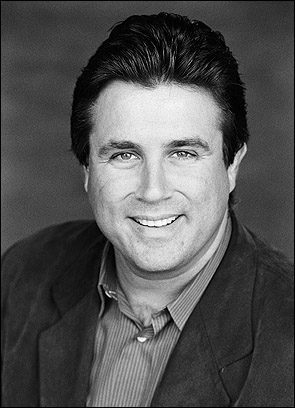
Speaking of the A&R department, HIT CLICK caught up with former A&R executive and Music
Industry expert, Ritch Esra, a man who has his finger on the pulse of A&R today, the labels
and the Music Industry through the Music Business Registry. Beginning his career at A&M
Records in radio promotion, Ritch Esra moved into A&R at Arista Records, where he signed the
Thompson Twins and worked with Aretha Franklin, Dionne Warwick and Whitney Houston.
Since forming the Music Business Registry in the early 90s, he publishes directories (A&R,
Publishers, Attorneys, Producers/Engineers, and Film/TV Music) that are widely regarded as the
best, most up-to-date and accurate in the record industry.
HIT CLICK INTERVIEW WITH RITCH ESRA
HIT CLICK: Tell us about Music Registry and the work you do currently?
RITCH ESRA: We’re a Contact Information Publisher for the Music Industry. We publish 5 of the
leading contact directories (A&R, Music Supervisors, Publisher, Music Attorneys and Managers)
www.musicregistry.com
HIT CLICK: How did you become an A&R executive and what musical and business skills did you
need to attain this position?
RITCH ESRA: I became an A&R Executive through an internship @ A&M in 1980. I joined Arista
in 1981 and volunteered to help out in A&R and remained there until 1987. Today, to become
and A&R Executive, you need to really know a specific style of talent very well. You need to
know the scene, the marketplace, the audience, and how to market that artist very well. It’s a
lot tougher today because Major Labels only want to sign Pop/Top 40 Acts that they can get on
the Radio. They no longer sign artists that take a long time to develop an audience for.
HIT CLICK: Did you ever spot talent and sign an act listening to a demo tape that someone sent
in unsolicited?
RITCH ESRA: No, Never! I’ve only heard of that happening once – The Smithereens were signed
off of sending in their demo tape to Enigma in the 80’s.
HIT CLICK: How many demo CDs and tapes on average arrived everyday when you worked in
A&R?
HIT CLICK: Were there any creative ways bands and artists tried to get your attention? What
was the most amusing approach and what was the most desperate?
RITCH ESRA: The most creative way I ever heard of was someone sending a single baby shoe in
a box with a note saying “Now that I’ve got my foot in the door, how about lending me an ear?”
HIT CLICK: How did you go about finding the type of talent the label wanted? What did you look
for?
RITCH ESRA: I had good relationships with Managers, Attorneys, Publishers, Producers and
other professionals in the business. You look for originality in whatever style the act is in.
You look for greatness and a unique perspective lyrically if it’s a singer/songwriter. If it’s a
singer, you look for interpretive quality, how well do you believe that they believe what they
are singing? The mark of truly great singer comes not only from having a great voice, but in
their interpretive skills. Some singers, like Streisand have both. If it’s a band, you look for great
material and a lead singer who is a star.
HIT CLICK: It is said that most A&R executives can listen to 30 seconds of a song and know
whether it will be a hit. Was this true of yourself?
RITCH ESRA: No it wasn’t, as a lot of hits are made in the studio. You could listen to a demo of
a great song and believe that this is a smash hit, but there are dozens of different elements that
need to come together in order for a song to be a hit. Also, not all great songs are hit records
and vice-versa!
HIT CLICK: What was an average day for you like as an A&R executive?
RITCH ESRA: Return calls, listen to material, get back to attorneys, managers, etc. Meet with
songwriters, producers, and others regarding the various projects on the label and then go to
see bands and artists at night.
HIT CLICK: How has A&R changed in light of the upheavals in the Music Industry?
RITCH ESRA: Some aspects haven’t changed at all. It’s still about discovering and signing
great artists and helping them to make great records. But today, the profession of A&R is
now much more of a research job in terms of finding talent. EVERYONE today has the tools
to find talent, that’s not the issue. The main issue is that there are no more “filters” in music.
Anyone and everyone can make a record and it doesn’t cost a fortune to do it. That’s the
good news. The bad news is anyone and everyone can make a record and it doesn’t cost
a fortune to do it. Granted, this means that there won’t be as many massive sellers in the
future. Oh, there will be a few but far fewer than we saw in the past. Today, we live in a world
where there is simply too much choice available. It’s fascinating to observe some of the most
influential Music Publications out there today such as pitchforkmedia.com and blender.com,
stereobugglegum.com to name 3 have hardly any mainstream artists in their Top 50 of 2011.
Today, it’s all about choices. The future of this business will be thousands of niche artists
selling fewer records. Much like cable television, which has a fraction of the audience but is
profitable!
And this is the most profound difference from the past in terms of A&R signings and looking at
what will work in the Marketplace. What this ultimately means is that the greatest challenges
that A&R faces today are 3 fold.
(1) Finding and developing artists that can create lasting value in their relationship and
engagement with their audience beyond recorded music. That’s the most profound challenge
in A&R today!
(2) Getting people’s attention today. In a marketplace where we all have endless choice in
music, this is a real issue and one that is only going to get worse.
(3) In a much deeper and more significant way, the seismic shifts in A&R reflect the massive
shifts we’ve seen in mass media overall.
We have begun to see the profound effects they’ve had on music in ways that could not be
imagined just 10 years ago. We’ve gone from a ‘Meta’ media culture (Massive Hollywood
Movies, Network & Cable Television, Major Labels, Radio, MTV, Mainstream Newspapers (LA,
NY Times) and Magazines (Rolling Stone, SPIN etc), to a much more individualized ‘micro’
media culture – Welcome to the age of Narrowcasting; specific music we can download off of
an artists web site to put into our iPod, customized news delivered directly into our personal
iPhone, TiVo-ized Specialty Television programs, sans commercials recorded from a 500 channel
universe that we can time-shift and watch whenever we choose to. Satellite Radio, with over
250 channels of music, sports and talk radio. Internet Radio which offers a universe of diverse
and unique music from around the world rather than the 3 or 4 radio stations we used to have
to listen to in the past. The growth of Podcasting, Blogging, and more recently video blogging,
and the ever expanding ‘social networking’ sites; have become the new Mass Media for the
21st Century. And collectively they have altered forever the musical landscape in terms
changes within A&R because it’s affected what artists and music can actually find an audience.
That’s the real win here for Artists; a transformation within the culture that completely
empowers the consumer.
HIT CLICK: What encourages you and discourages you about the Music Industry at present?
RITCH ESRA: What encourages me the most is that we’re in the midst of a radical revolution
within this business in that everything we’ve known and operated by over the last 45 years is
coming to an end. The labels no longer control the marketplace with the exception of Pop/
Top 40 hit singles which are selling to fewer and fewer people and are getting more and more
expensive to do. What’s most discouraging is the fierce resistance that many of the rights
holders (Labels & Publishers) have toward developing new revenue streams. They have gotten
used to a certain so-called “worth/value” proposition that worked for most for a very long time
but no longer does. It’s time to embrace the future instead of continuing to resist it. There will
be more money and more sources of it than we’ve ever seen. It’s just that it won’t look like it
did in the past.
HIT CLICK: What musical trends are you keeping an eye on and what do you think the Music
Industry of the future will look like?
RITCH ESRA: The Electronic Music Field is fascinating because it’s the first genre to have grown
this big in an organic way since the birth of AOR (Album Oriented Rock) Radio in the 60’s. As to
the future, today with so many more marketing and exposure options available to artists (iPods,
Internet radio, websites, and social media as well as non-traditional retail – on-line, etc) the
artists who develop and build a career for themselves won't necessarily be household names in
the first few years, if ever, but they will have a built a very solid base of fans that actually want
their music and will attend their live performances. These artists will have built their following
over a long period of time, not through hype and over-exposure on radio or other media outlets
that in so many cases actually damage careers instead of enhancing them. More than ever I see
youth culture, looking for something authentic, something they feel an emotional connection
with. Look at Adele’s success. It’s everything that most massive Pop Acts aren’t – Authentic,
Emotionally connecting to their audience beyond just the songs. This is the tragedy of Major
Labels today – (Tragedy, in the classic definition is defined as “the fall from greatness through
an unseen flaw in ones character). They keep looking for the “formula” that will give them
the huge Multi-Platinum sellers that they once enjoyed. Only problem is, the system today
doesn’t allow these types of massive sellers like it did in the past. Today, we have far too many
choices. And that’s the flaw. Major labels cannot see that the harder and louder they continue
to market their acts, the more the audience they’re trying to reach doesn’t seem to hear them
or care for that matter. It is this particular phenomenon that I believe will alter the type of
artists, regardless of style, that will emerge and be able to build viable careers for themselves
in the coming years. Will this new business model look like what came before? Not a chance!
This will be one of the more difficult lessons for us as an industry and especially up and coming
artists to get. Letting go of what we’ve always held as the definition of success (Out-of The Box
Top-10 radio hits, Huge Album Sales, videos on TV, endorsements for anything and everything,
commercials, transitioning into motion pictures will no longer be seen as a path to career
longevity. This new breed of artists and managers (and yes, there are a few who do think long-
term) emerging today do not appear to see their careers with this same unhealthy compulsion.
They seem to have a solid grasp of who and what they are and have been able to map out a
career path that is consistent with that vision. This is what will contribute to building careers,
rather than destroying them.
HIT CLICK EDITORIAL COMMENT: Mr. Esra is in the business or resourcing artists/musicians
like you with invaluable information and the publications from Music Business Registry offer
comprehensive lists of contacts throughout the Music Industry worldwide and they should be
on your bookshelf right next to the HIT CLICK books
